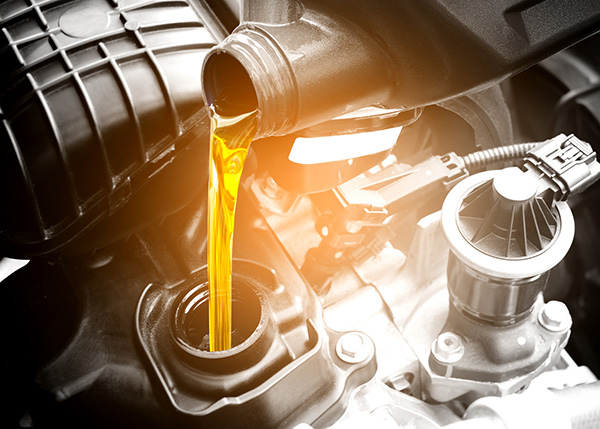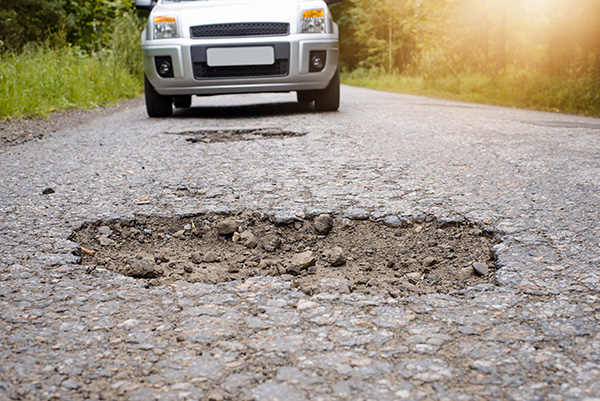Posted on 6/28/2024

As the temperatures rise and summer approaches, many drivers begin to wonder if they need to change their motor oil for the warmer months. It's a common question and one that deserves a thoughtful answer. After all, your car's engine is the heart of your vehicle, and proper lubrication is crucial for its longevity and performance. We believe that understanding the nuances of motor oil and its relationship with seasonal changes can help you make the best decisions for your vehicle. The Role of Motor Oil in Your Engine Motor oil is essential for the smooth operation of your engine. It lubricates the moving parts, reducing friction and wear. It also helps to cool the engine by carrying heat away from critical areas, and it cleans the engine by trapping dirt and debris, preventing them from causing damage. Without motor oil, your engine would quickly overheat and suffer catastrophic damage. How Seasonal Changes Affect Motor Oil Viscosity and Te ... read more
Posted on 5/29/2024

Driving on mountain roads can be exhilarating, but it also presents unique challenges, especially when it comes to braking. There are some effective techniques to brake safely on mountain roads without risking overheating your brakes. Understanding the Challenge Braking on mountain roads involves navigating steep descents and tight turns, which can significantly strain your vehicle's brakes. The continuous application of brakes generates heat, and if not managed properly, it can lead to brake fade or even failure. What is Brake Fade Brake fade is a phenomenon where prolonged or aggressive braking leads to a loss of stopping power. In mountain driving, the constant strain on brakes can exacerbate brake fade, compromising safety. Understanding this issue is crucial for drivers, as it highlights the importance of proper braking techniques and maintenance to ensure safe mountain travel. Techniques for Safe BrakingAnticip ... read more
Posted on 5/13/2024
Before heading out for a vacation or a road trip, it’s a good idea to check your vehicle’s wheel alignment. Misaligned wheels result in accelerated tire wear. It’s easy to clock thousands of miles over the summer, so the wear and tear on the tires can be substantial. At South Denver Automotive we offer complete tire care, including new tires and wheel alignment. While there are symptoms that alert you to the need for wheel alignment: uneven tire wear, vibrations while driving, or car pulling to one side, it’s best to bring your vehicle to South Denver Automotive, and let our nationally ASE certified technicians perform alignment check, and while we have your vehicle in the shop, we can also check condition of the tires, and perform tire rotation so you vehicle will be ready for the summer fun. Wheel alignment is performed by our highly experienced technicians using computerized alignment machines that can measure alignment accuracy to a level greater than what ... read more
Posted on 5/5/2024
At South Denver Automotive we offer comprehensive auto care, including check engine light diagnostics and repairs. Check engine light (CEL) is a warning light that can come "on" for a variety of reasons; actually, hundreds of conditions can cause the onboard computer to turn on the CEL. CarMD.com, a company that provides car owners with information about check engine light repairs, has been providing yearly studies of the top reasons for the check engine light warning. After analyzing over 15 million reports submitted in 2023, here is what they found: 1) Catalytic converter replacement– unfortunately catalytic converter thefts continue across the country, hence catalytic converter replacement is the first item on the list. 2) ... read more
Posted on 4/19/2024

Springtime in Colorado brings beautiful scenery and warmer weather, but it also brings something less desirable—potholes. These road hazards can wreak havoc on your car's alignment, causing a range of issues that can affect your driving experience and safety. The Problem with Colorado Potholes As the snow and ice melt away, they reveal the damage left behind on the roads—potholes of all shapes and sizes. These craters form when water seeps into cracks in the pavement, freezing and expanding and then thawing, leaving gaps. As cars drive over these weakened spots, the pavement collapses, creating potholes that can vary in depth and severity. How Potholes Affect Your Car's Alignment When you hit a pothole, your car's suspension system absorbs the impact to protect you and your vehicle. However, this can throw off your car's alignment, causing ... read more
Posted on 3/27/2024

Embarking on a mountain adventure in Colorado is an exciting experience that promises breathtaking views and unforgettable memories. It's crucial to ensure that your vehicle is in top condition before traveling through the Rocky Mountains to handle rugged terrain and changing weather conditions. Check Your Fluids Checking fluid levels is the most critical step in maintaining your vehicle's performance and efficiency, particularly in high-altitude environments. Before your Colorado mountain adventure, check your engine oil, coolant, brake fluid, and transmission fluid levels, topping up as needed. Ensure that your windshield washer fluid is also topped up, as visibility can be compromised by dust, mud, or inclement weather conditions in the mountains. Keeping your fluids at optimal levels will help prevent overheating, engine damage, and other mechanical issues during ... read more
Posted on 2/27/2024
.jpeg)
You're cruising down the road, enjoying the breeze through the windows, when suddenly, you notice something alarming—the temperature gauge creeping into the red zone. Your vehicle's cooling system is crucial for maintaining optimal engine temperature, and when it malfunctions, it can spell trouble. 1. Rising Temperature Gauge One of the most obvious indicators of cooling system issues is a rising temperature gauge on your dashboard. If you notice the needle creeping toward the red zone or a warning light illuminating, it's a clear signal that your engine is running hotter than it should be. Ignoring this warning could lead to engine damage or even complete failure, so it's crucial to address it promptly. 2. Leaking Coolant Coolant, also known as antifreeze, plays a vital role in regulating engine temperature. If you spot a pudd ... read more
Posted on 1/31/2024
.jpeg)
When delving into the world of car maintenance, two critical components often come up: the timing belt and the auxiliary belt. While they might seem similar, these belts play distinct roles in your vehicle's functionality. The Timing Belt The timing belt, also known as a camshaft drive belt, is integral to the internal combustion engine's operation. It's responsible for synchronizing the rotation of the crankshaft and the camshaft. This synchronization is crucial as it ensures the engine's valves open and close at the correct times during each cylinder's intake and exhaust strokes. Key Features of the Timing Belt: Material: Usually made from high-quality rubber with high-tensile fibers. Location: Located inside the engine and often requires disassembly of parts of the engine to access. Function: Synchronizes the engine's valves with the piston movements. Maintenance ... read more
Posted on 12/4/2023

As drivers, we're accustomed to following a set of well-established traffic laws and regulations to ensure road safety and order. However, some traffic laws from around the world leave us wondering if they were concocted in a parallel universe. We'll explore the bizarre, amusing, and outright perplexing traffic laws that exist in various corners of the globe. The Elephant Dilemma Ever wondered what to do if you encounter an elephant on the road? In some parts of Africa, drivers are required to yield the right of way to these massive creatures. It's a reminder that traffic laws can vary significantly from one region to another. Also read: 5 Telltale Signs It's Time for a Diagnostic Check Don't Run Out of Gas in Germany In Germany, it's against the law to run ou ... read more
Posted on 11/27/2023
%20(Small).jpeg)
Ever wondered what magic occurs when you press your foot down on the brake pedal and your vehicle obediently slows to a halt? It's not magic, but rather an impressive symphony of mechanical components working in harmony to ensure your safety. The Basics - A Lesson in Physics and Friction Braking is all about converting kinetic energy (the energy of your moving car) into thermal energy (heat). This transformation is achieved primarily through friction. When you press down on the brake pedal, a lever pushes a piston into a cylinder filled with hydraulic brake fluid. This fluid travels through lines to other cylinders positioned next to the brakes on each wheel. Disc Brakes In disc brake systems, which are commonly found in most modern vehicles, the hydraulic pressure forces a caliper to squeeze pairs of pads against a ... read more